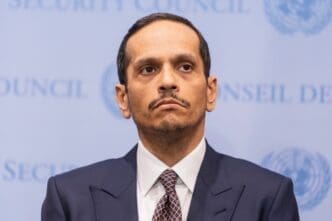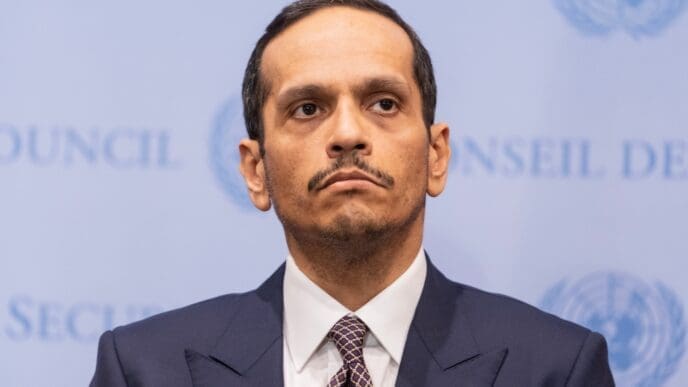French President Emmanuel Macron, addressing the nation, has confirmed his commitment to remain in office until the conclusion of his term in 2027. He announced plans to appoint a new prime minister within days to steer the nation out of its political impasse.
A historic no-confidence vote in the National Assembly has left France without a functioning government, following the resignation of Prime Minister Michel Barnier. President Macron has criticized his political adversaries, particularly on the far right, for inciting disorder and bringing down Barnier’s administration. Macron emphasized, ‘They chose disorder,’ attributing the governmental collapse to what he termed an ‘anti-Republican front’ formed by the far right and the far left.
Acknowledging his own role in the current political instability, Macron reflected on his decision to dissolve parliament in June as a catalyst for the crisis. This move, intended to allow voters a voice through legislative elections, resulted in a parliament composed of three minority blocs unable to independently govern. ‘I recognize that this decision wasn’t understood,’ Macron stated, yet maintained, ‘I believe it was necessary.’
In his address, Macron assured the public that essential services and businesses will continue to operate. He outlined plans for a special law to ensure taxes can be levied from the start of the new year, maintaining public services without disruption. Looking ahead, the formation of a new government will focus on developing a budget for 2025, with funding priorities including the military, justice, police, and agricultural support.
International challenges, such as conflicts in Ukraine and the Middle East, were also highlighted by Macron, alongside recent domestic achievements like the Paris Olympics and the restoration of Notre Dame Cathedral. He argued that France can overcome its political crisis by replicating the determination shown in these successes.
Macron is tasked with selecting a candidate to replace Barnier who can lead a minority government effectively. Yaël Braun-Pivet, head of the National Assembly, urged swift action from Macron, stressing the need for a leader capable of bridging political divides and advancing a new budget bill.
The no-confidence vote has emboldened opposition leaders, some of whom have called for Macron’s resignation. While far-right leader Marine Le Pen stopped short of such demands, she noted increasing pressure on the president. France’s constitution does not mandate presidential resignation following a government ousting, and new legislative elections are not possible until at least July, presenting a potential policy-making deadlock.
Economic concerns are mounting amid political instability, with warnings from rating agency Moody’s about the risk to public finance consolidation and the potential impact on interest rates. Demonstrations by teachers against educational budget cuts have taken on new urgency, with protesters holding Macron accountable for the perceived deteriorating state of public services.
As France navigates this political upheaval, President Macron remains committed to his leadership role, seeking to stabilize the government and address both domestic and international challenges. The coming days will be critical as Macron appoints a new prime minister to guide the nation through its current crisis.
Source: Apnews














